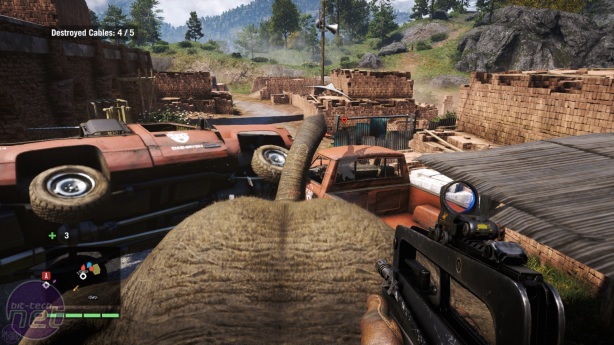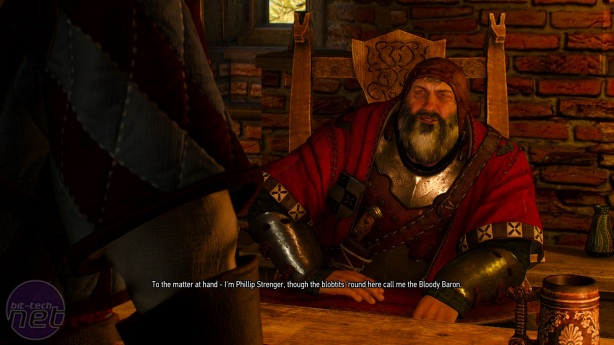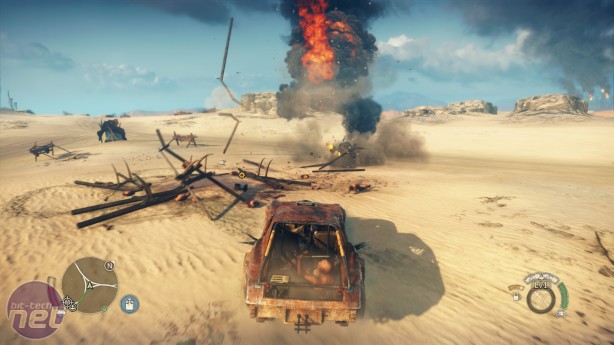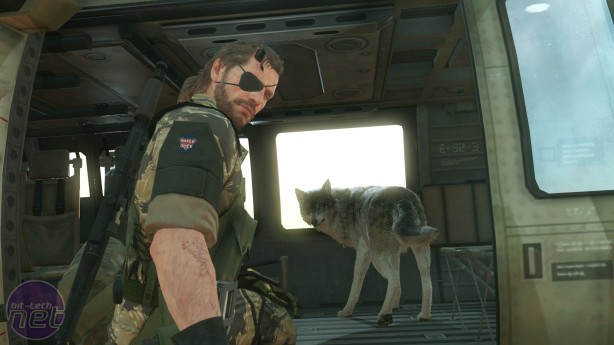
In these games, it's quantity of content that comes first, suitability second. This doesn't necessarily prevent these games from being excellent, but it always causes problems within them. As entertaining as Far Cry 4 is, it can't be denied that the time-trial races are deeply incongruous with its world supposedly torn apart by civil war. And although Shadow of Mordor sports the brilliant Nemesis system, it's often obscured by a bulk of unnecessary upgrade trees, arbitrary collectibles, and filler side-activities.
Worst of all, this tendency to recycle ideas ultimately means all of the above games end up feeling similar. Not so with the Witcher 3 or Metal Gear Solid V. In fact, both games adopt completely different approaches to creating a character-driven open world. The Witcher 3 is scripted down to the finest detail. The world only changes in accordance with the story, every activity Geralt partakes in has a fairly rigorous structure to it, and even the daily activities of peasants happen according to a strict daytime schedule. But it's the depth of that scripting in both mechanics and storytelling that makes the world come alive.
Some of the Witcher's side-missions have plot-lines that could easily be the main quest of any other open world game, while it invests enormous amounts of time humanising its colourful cast of characters. When you complete a quest in the Witcher 3, you don't see it through because of the reward at the end, you do so because you genuinely want to find out what happens to the individuals involved, how your actions will influence their lives and the lives of those around them. It's an open world game that openly bares its soul, rather than trying to distract you from the fact that it doesn't have one.
The Phantom Pain tackles open world design from opposite direction. Its world is almost entirely dynamic. The scripted cut-scenes and prolonged dialogue exchanges have been cut back enormously from previous Metal Gear Solid games. Most of the time you're completely free to explore and experiment with the game. Each of the world's villages, military bases internment compounds and so forth can be approached from literally any angle. There are always options available to you, and never a "right" way to complete a particular objective.
Most importantly, every action you take provokes a logical reaction from the game. AI responses are predictable but not identical. If a guard notices something awry, he might come and investigate or radio in for support or advice. If the alarm is raised, the garrison will call for reinforcements, unless you already disabled their communications system. The situation constantly changes fluidly and seamlessly, and there is nearly always a way for the player to adapt to those changes.
Both games are demonstrably open-world, and yet both provide completely different experiences that are superior to anything that has been released in the last two or three years. Rather than re-purposing an established template, CD Projekt RED and Kojima Productions opted to create frameworks of their own, to make their game fit the theme, rather than forcing the theme to fit the game.
You only need to look at another recently released open world game, Avalanche Studios' Mad Max, to see what a difference this makes. Mad Max released on the same day as the Phantom Pain, and although it's a well built and frequently enjoyable game, the open world design already feels outdated. The oil-transfer plants that you need to "liberate" feel strangely at odds with the free-roaming, vehicular focus of Mad Max as a film series, while the free-flow combat repurposed from Batman feels noticeably tired. The excellent car combat, which should be the focus of the game, is suffocated underneath a half dozen cookie-cutter activities that become repetitive after just a few hours of play.
When the Witcher 3 released in May, casually lopping the heads off every other RPG around and mounting them on its saddle, it felt like a singular event, an anomalous spike in quality limited to the fantasy role-playing genre. But with the Phantom Pain repeating, perhaps even exceeding Wild Hunt's astonishing success in delivering a more detailed, more unique and more characterful open world, it's clear that the bar has been raised permanently. With three months of 2015 left to go, it will be fascinating to see whether other open world games releasing this year, like Fallout 4, Assassin's Creed Syndicate and Just Cause 3, will be attuned to this shift in quality, or whether their developers, previously the champions of open world gaming, will find themselves deposed by CD Projekt and Kojima Productions.
Worst of all, this tendency to recycle ideas ultimately means all of the above games end up feeling similar. Not so with the Witcher 3 or Metal Gear Solid V. In fact, both games adopt completely different approaches to creating a character-driven open world. The Witcher 3 is scripted down to the finest detail. The world only changes in accordance with the story, every activity Geralt partakes in has a fairly rigorous structure to it, and even the daily activities of peasants happen according to a strict daytime schedule. But it's the depth of that scripting in both mechanics and storytelling that makes the world come alive.
Some of the Witcher's side-missions have plot-lines that could easily be the main quest of any other open world game, while it invests enormous amounts of time humanising its colourful cast of characters. When you complete a quest in the Witcher 3, you don't see it through because of the reward at the end, you do so because you genuinely want to find out what happens to the individuals involved, how your actions will influence their lives and the lives of those around them. It's an open world game that openly bares its soul, rather than trying to distract you from the fact that it doesn't have one.
The Phantom Pain tackles open world design from opposite direction. Its world is almost entirely dynamic. The scripted cut-scenes and prolonged dialogue exchanges have been cut back enormously from previous Metal Gear Solid games. Most of the time you're completely free to explore and experiment with the game. Each of the world's villages, military bases internment compounds and so forth can be approached from literally any angle. There are always options available to you, and never a "right" way to complete a particular objective.
Most importantly, every action you take provokes a logical reaction from the game. AI responses are predictable but not identical. If a guard notices something awry, he might come and investigate or radio in for support or advice. If the alarm is raised, the garrison will call for reinforcements, unless you already disabled their communications system. The situation constantly changes fluidly and seamlessly, and there is nearly always a way for the player to adapt to those changes.
Both games are demonstrably open-world, and yet both provide completely different experiences that are superior to anything that has been released in the last two or three years. Rather than re-purposing an established template, CD Projekt RED and Kojima Productions opted to create frameworks of their own, to make their game fit the theme, rather than forcing the theme to fit the game.
You only need to look at another recently released open world game, Avalanche Studios' Mad Max, to see what a difference this makes. Mad Max released on the same day as the Phantom Pain, and although it's a well built and frequently enjoyable game, the open world design already feels outdated. The oil-transfer plants that you need to "liberate" feel strangely at odds with the free-roaming, vehicular focus of Mad Max as a film series, while the free-flow combat repurposed from Batman feels noticeably tired. The excellent car combat, which should be the focus of the game, is suffocated underneath a half dozen cookie-cutter activities that become repetitive after just a few hours of play.
When the Witcher 3 released in May, casually lopping the heads off every other RPG around and mounting them on its saddle, it felt like a singular event, an anomalous spike in quality limited to the fantasy role-playing genre. But with the Phantom Pain repeating, perhaps even exceeding Wild Hunt's astonishing success in delivering a more detailed, more unique and more characterful open world, it's clear that the bar has been raised permanently. With three months of 2015 left to go, it will be fascinating to see whether other open world games releasing this year, like Fallout 4, Assassin's Creed Syndicate and Just Cause 3, will be attuned to this shift in quality, or whether their developers, previously the champions of open world gaming, will find themselves deposed by CD Projekt and Kojima Productions.

MSI MPG Velox 100R Chassis Review
October 14 2021 | 15:04













Want to comment? Please log in.